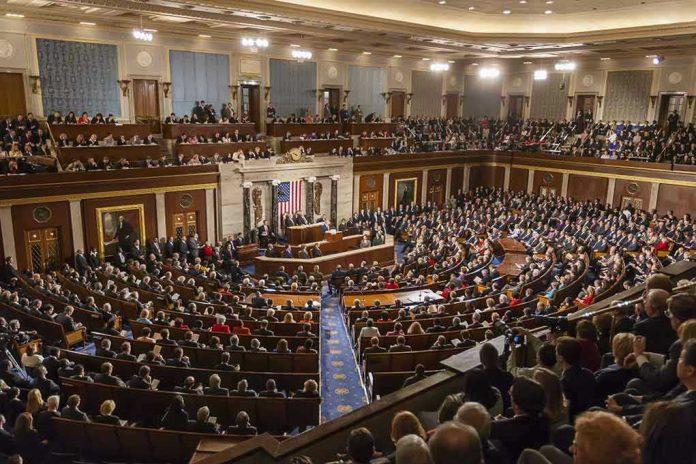
A new claim by a transgender lawmaker alleges a coordinated attack on trans rights by well-funded right-wing groups, raising concerns among conservatives about the integrity of political debate.
Story Highlights
- Sarah McBride, first openly transgender Congress member, faces backlash she attributes to right-wing efforts.
- McBride calls for bipartisan cooperation, challenging the narrative of an organic anti-trans sentiment.
- Conservative groups allegedly orchestrate anti-trans campaigns, intensifying political polarization.
- Ongoing debate risks further legislative gridlock amid rising cultural tensions.
McBride’s Claim and the Backlash
In November 2024, Sarah McBride made history as the first openly transgender member of Congress, representing Delaware. However, her victory was met with immediate backlash from Republican lawmakers.
McBride has since stated that the backlash is not a result of organic public opposition but a coordinated effort by well-funded right-wing groups. These claims have sparked a significant debate about the authenticity of the anti-trans sentiment in the political landscape.
McBride’s approach to handling the backlash emphasizes her desire for bipartisan cooperation. She aims to shift the narrative away from right-wing framing, urging fellow lawmakers to focus on common ground solutions rather than being drawn into culture war provocations. Her stance highlights the complex dynamics in Congress, where social issues like transgender rights are often leveraged for political gain.
Conservative Influence and Media Campaigns
Conservative advocacy groups have been accused by McBride of orchestrating anti-trans campaigns through strategic funding and media influence. This allegation underscores the significant power dynamics at play, where money and messaging shape public discourse and policy outcomes. The involvement of these groups in the trans rights debate exemplifies the broader cultural battles that have defined recent political cycles.
Despite the accusations, conservative commentators argue that public opposition to trans policies is genuine and not merely manufactured by these groups. This contention reflects the deep ideological divides on cultural issues, with each side viewing the other’s motives with skepticism. The ongoing debate continues to draw national attention, affecting legislative priorities and public perception.
Implications for Future Policy and Elections
The polarization over trans rights is expected to have both short-term and long-term impacts on American politics. In the short term, heightened media attention and legislative gridlock are likely as lawmakers grapple with these contentious issues. Over the long term, the framing of trans rights as a partisan issue could influence future elections, policy development, and public attitudes, particularly as McBride’s advocacy challenges traditional narratives.
The stakes are high for all parties involved, as the outcomes of these debates will shape the broader cultural and political landscape. Advocacy organizations, political parties, and individual lawmakers must navigate these complex dynamics as they seek to influence the national conversation on trans rights and related issues.
Sources:
Rep. Sarah McBride Won’t Be Baited by GOP ‘Provocateurs’
Fox News Coverage of McBride’s Statements
AOL Commentary on McBride’s Position











